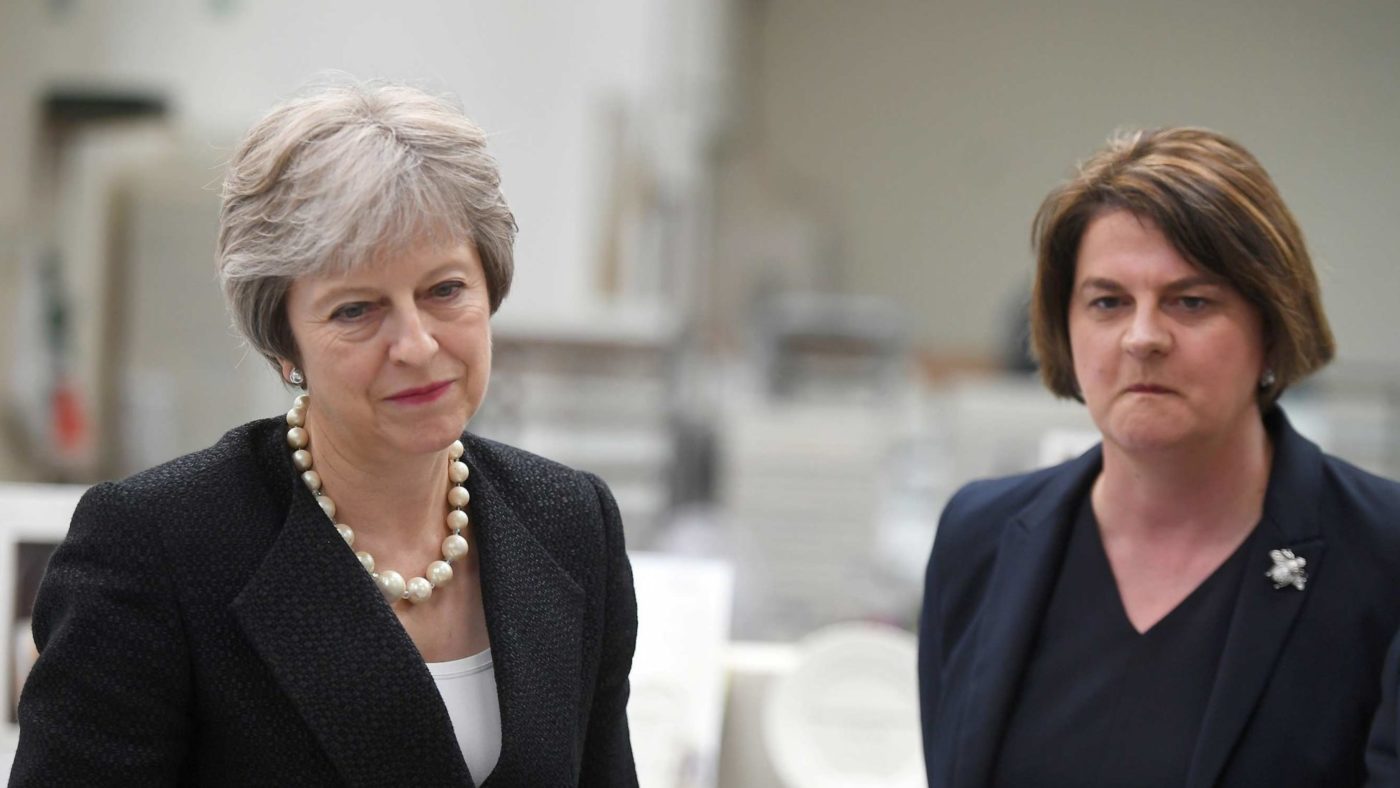After months of tense negotiations, the agreement of the draft text of a Brexit withdrawal agreement should be cause for champagne corks popping and church bells pealing. However, Theresa May’s leadership of the talks process has been so halting, and the Government’s adherence to its ‘red lines’ so unconvincing, that the news was greeted mainly with apprehension and unease, particularly among Tory Brexiteers and Ulster unionists.
We’ve known for weeks that the EU’s demand for a legal ‘backstop’, to avoid new checks and infrastructure at the Irish land border, was the last significant obstacle to closing a deal. To solve this problem, the two sides have agreed to create a temporary UK-wide ‘customs arrangement’, that will feature ‘deeper’ provisions, designed to keep Northern Ireland more closely aligned with the EU than the rest of the country.
May will claim that this is a concession wrested from Brussels. Previously, the EU’s negotiators insisted that the ‘backstop’ should apply only to Northern Ireland. More latterly, Michel Barnier demanded a ‘backstop to the backstop’ that would prevent the province from leaving any customs union with the rest of the UK, if an alternative understanding were not in place to prevent a hard border.
The draft text apparently contains a backstop that is nationwide, at least in theory, and the backstop to the backstop has disappeared. However, this compromise has been achieved at the cost of tying the whole UK more intractably to the EU’s regulations and tariff regime.
For leading Brexiteers, like Boris Johnson, Jacob Rees-Mogg and Iain Duncan Smith, there’s little to distinguish this proposed temporary customs arrangement from the existing customs union. If Britain cannot broker a free trade agreement with the EU, it doesn’t follow that we can leave the arrangement unilaterally. Instead, it will be subject to some type of joint review that assesses whether a ‘hard’ border in Ireland can be avoided under the Future Framework. Brexiteers allege that Britain could be ‘handcuffed’ to Brussels in perpetuity.
Perhaps even more critically, the customs arrangement seems to depend upon the UK adhering to swathes of EU rules and regulations. The EU Commission’s deputy chief negotiator, Sabine Weyand, told European ambassadors yesterday that Britain will, “have to swallow a link between access to products and fisheries.” “They must align their rules but the EU will retain all the controls,” she claimed.
Johnson has already described the unpublished agreement as “vassal state stuff” and other pro-Brexit Tories have been almost as forthright. The detailed text will have to do an awful lot of work to shift those attitudes significantly. Throughout her premiership, May has insisted that Brexit must mean, at a minimum, leaving the customs union and single market. On the basis of what we know so far, it will be difficult to persuade her doubters that she has met these fundamental tests.
The Prime Minister will find it equally hard to persuade unionists that this deal protects the integrity of the United Kingdom. Unless scores of Labour rebels defy Jeremy Corbyn, she is likely to need the DUP’s support in the House of Commons. So far, its representatives have expressed varying degrees of alarm at the idea that Northern Ireland could be bound more tightly to EU rules than the rest of the UK.
The East Antrim MP, Sammy Wilson, who is known for his uncompromising stance on Brexit, was most strident. Indeed, while he was relatively guarded speaking on Radio 4 yesterday, his views seemed to have hardened overnight and this morning he tweeted, “the great and the good … will be rolled out again in the coming weeks to try and get us to fall into line… We are clear – we will not be voting for this humiliation”.
The party’s leader in the House of Commons, Nigel Dodds, was a little more measured, expressing doubt that the Cabinet and Parliament will endorse the document. Arlene Foster spoke about “worrying times” and the democratic unacceptability of Brussels setting Northern Ireland’s trade rules.
According to ITV’s Robert Peston, Brussels refers to this version of the backstop as the “swimming pool approach”, with Great Britain in the shallow end and Northern Ireland in the deep end. Ultimately, the DUP and its allies in the Conservative Party will have to judge whether the depth of the province’s end of this pool is tolerable.
There are already specific rules for Northern Ireland in animal health and other areas, but unionists will be dissecting the text to see whether it makes further divergence likely. They will be not be reassured by the assessment of the Attorney General, Geoffrey Cox, who reportedly told the cabinet that the province will be in a “different regulatory regime” under the backstop.
Last night, Boris Johnson warned that “for the first time since partition, Dublin – under these proposals – would have more say in some aspects of the government of Northern Ireland than London.” If the published provisions of the agreement can be portrayed in this way, there is very little chance that the DUP will vote for it.
Of course, the draft text of this deal has not yet been published and some sources have suggested that, because confidence in the Prime Minister is so low, her critics may be pleasantly surprised by its contents. Even then, the document is apparently nearly 600 pages long and no doubt crammed with complexities and ambiguities.
Last December, the DUP was convinced that its insistence on redrafting articles 49 and 50 of the Withdrawal Agreement ensured that Northern Ireland could not be hived off from the rest of the UK. Very quickly it became clear that the EU took the opposite view. This time, every dot and comma will be scrutinised with the utmost scepticism.


